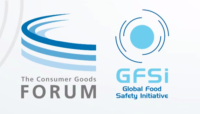SSAFE Launches Free Online Food Fraud Vulnerability Tool

Today, SSAFE announces the launch of the Food Fraud Vulnerability Assessment tool, a free tool to help food companies assess fraud vulnerabilities and protect consumers.
The free online tool--developed by the nonprofit SSAFE in partnership with Pricewaterhouse Coopers (PwC), Wageningen University, VU University Amsterdam and food industry leaders around the world--is available just in time for the Global Food Safety Initiative's new global food safety requirements. With it, food fraudsters will have a harder time infiltrating supply chains in an effort to make a profit.
“Recent food fraud incidents have increased the need to strengthen the food industry’s ability to detect and combat fraud across food supply chains,” says SSAFE Executive Director Quincy Lissaur. “As a nonprofit organization SSAFE believes protecting consumers is vital. By developing this free tool we hope to help strengthen companies’ internal controls while reducing opportunities to adulterate food for economic gain.
Craig Armitage, PwC’s global leader of food supply and integrity services, says current food safety practices are not always designed for fraud mitigation. “Beyond the economic cost, food fraud can harm public health and damage consumer trust. Food frauds, such as horse meat being passed off as minced beef or the addition of melamine in dairy, have increased the urgency with which the food industry is taking action.”
Food fraud is a global issue believed to cost between $30 billion to $40 billion each year.
SSAFE and PwC’s ‘Food Fraud Vulnerability Assessment’ is freely available now for all food companies to download in Excel at www.ssafe-food.org or online at www.pwc.com/foodfraud. It will be available for download on Apple’s App Store or on Google Play later this month.
Looking for a reprint of this article?
From high-res PDFs to custom plaques, order your copy today!





